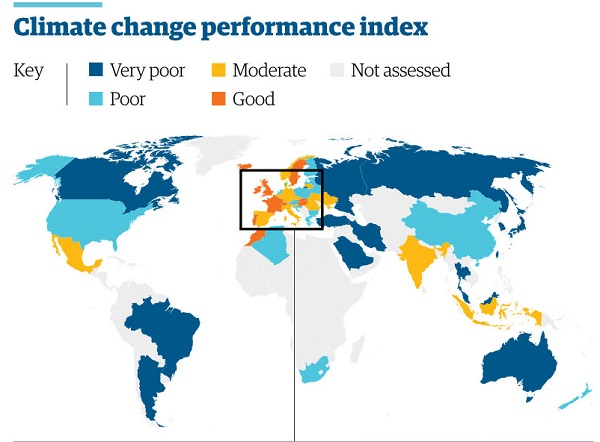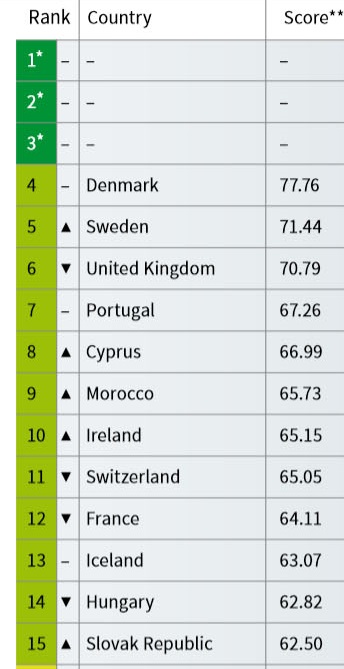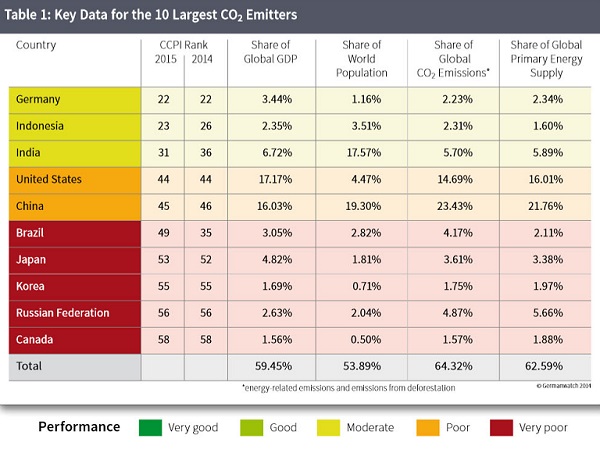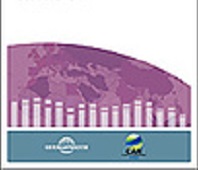Australia ranks 57 out of 58 countries in the The Climate Change Performance Index 2015, heading only Saudi Arabia, which is not classified as an industrial country. Australia has dropped 21 places since the last survey a year ago.
There are reports in The Age and The Guardian. From the latter:
Australia has been named the worst-performing industrial country in the world on climate change in a report released at international negotiations in Peru.
The climate change performance index ranked Denmark as the best-performing country in the world, followed by Sweden and Britain.
Among the world’s top 10 emitters, Germany was ranked the highest at 22. Australia was second bottom overall, above Saudi Arabia – which was not classified as industrial.
The report states: “The new conservative Australian government has apparently made good on last year’s announcement and reversed the climate policies previously in effect. As a result, the country lost a further 21 positions in the policy evaluation compared to last year, thus replacing Canada as the worst-performing industrial country.”
This map from The Guardian gives an overview:

Clearly Europe is the best performing region. Here are the top dozen ranked countries:

No countries were coded dark green for “very good”. This means according to the report’s criteria that no countries are performing well enough to limit global emissions to two degrees. Because the top three places were left vacant you have to subtract three from each ranking to find the actual rank placing. Eleven of the twelve countries coded “good” were European.
Here are the 10 heaviest emitters in order of ranking:

The ten worst countries are, from the bottom, Saudi Arabia, Australia, Kazakhstan, Canada, Iran, Russia, Korea, Chinese Taipei, Japan and Malaysia.
The index covers the performance of countries across five areas – the level of emissions, the trends in emissions, energy efficiency, renewable energy policies and the approach to climate change at national and international levels.
The report has been compiled each year since 2005 by Climate Action Network Europe and Germanwatch. The Australian Conservation Foundation assisted with the Australian information.

